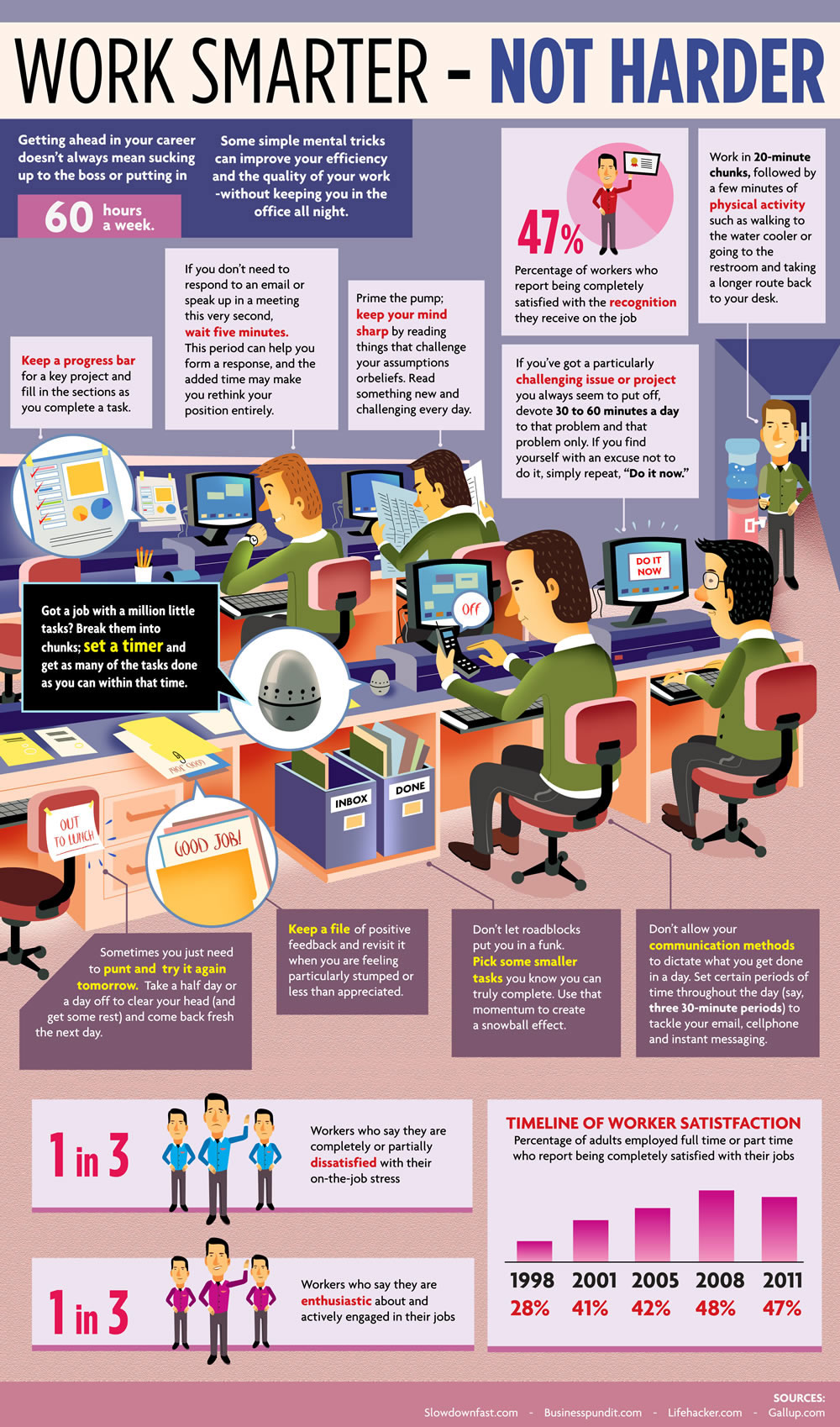Does the logic follow that if we can learn how to maximize our efficiency at work, we will be able to work less hours? It makes sense, but is there a real connection there, or do we just work long hours because it’s expected of us, and not because our work demands it? I remember reading an article on Mashable a few months ago called Sheryl Sandberg Leaves Work at 5:30 Every Day – And You Should Too. It was an article about how Ms. Sandberg, who is the Facebook COO and former Google executive, leaves work every day at 5:30 so she can be home to eat dinner with her family by 6:00.
I remember reading that article and having all kinds of feelings. First, I thought that she must not be getting all of her work done (which is not true of course, it was just my first gut reaction), or she probably has a handful of assistants (which may or may not be true). Next, I felt a little bit jealous because the last time I stopped working at 5:30 was the last time I was on vacation. And finally, I felt like I needed to learn more about this. It’s crazy to me that I had such a wide gamut of emotions when I read that article. It shows that the topic is a relevant and sensitive one, at least to me.
I was very inspired when I read about Ms. Sandberg, and how she has chosen to organize her schedule. It takes a lot of guts to do that and go against those social stigmas, especially since she’s a woman in a position of power. I’ve been reading more and more about employees who are putting their foot down when it comes to the, “you work until 8:00pm or you are a slacker” mentality. This infographic, created by Best Masters Degrees, called Work Smarter – Not Harder gives us some simple tricks we can do to improve our efficiency at the office so we might not have to stay quite as long.
I work from home, and I start every day working on my laptop while sitting in bed before the sun comes up, and I end every day doing the same thing, again when it’s dark outside. After thinking about this more, although I work a ridiculous number of hours, I don’t know if I would want to change that, even if I could. It is a little nuts though, I’ll admit that. I guess that is one of the main differences between being an employee and being an entrepreneur. Entrepreneurs are grateful to live in a country where they are allowed to bust their asses on their passion all day and all night, and employees (unless they are blessed to have a job that they’re passionate about) often want to work less.
However, with that being said, that’s not to imply that there is a right or wrong to this. Everybody has their own circumstances to deal with in their lives. Some people have large families, others work a job during the day and work their own business at night, and some people have other obligations and higher priorities that fit into this equation. You have to ask yourself, “Do I work to live or live to work.” It’s not as straight forward as it may seem. At the end of the day, it’s a personal decision about what works best for you, your happiness and your overall life. I don’t want people at my funeral to say, “We tried to get her to spend time with us, but all she really wanted to do was work.” Regardless of all the tough decisions we make regarding this, and whether we are an employee or an entrepreneur, I think both groups of people could use a little more efficiency, don’t you agree? I definitely could.
Other than the fact that there are no women in this infographic (WTF?), I really like it. I think the best one on here is “Don’t allow your communication methods to dictate what you get done in a day.” We’ve all fallen victim to that at some point, right? Learning how to log off Twitter, Facebook and email without feeling antsy is half the battle, or at least it is to me.
Click Infographic To Enlarge

COMMENTS